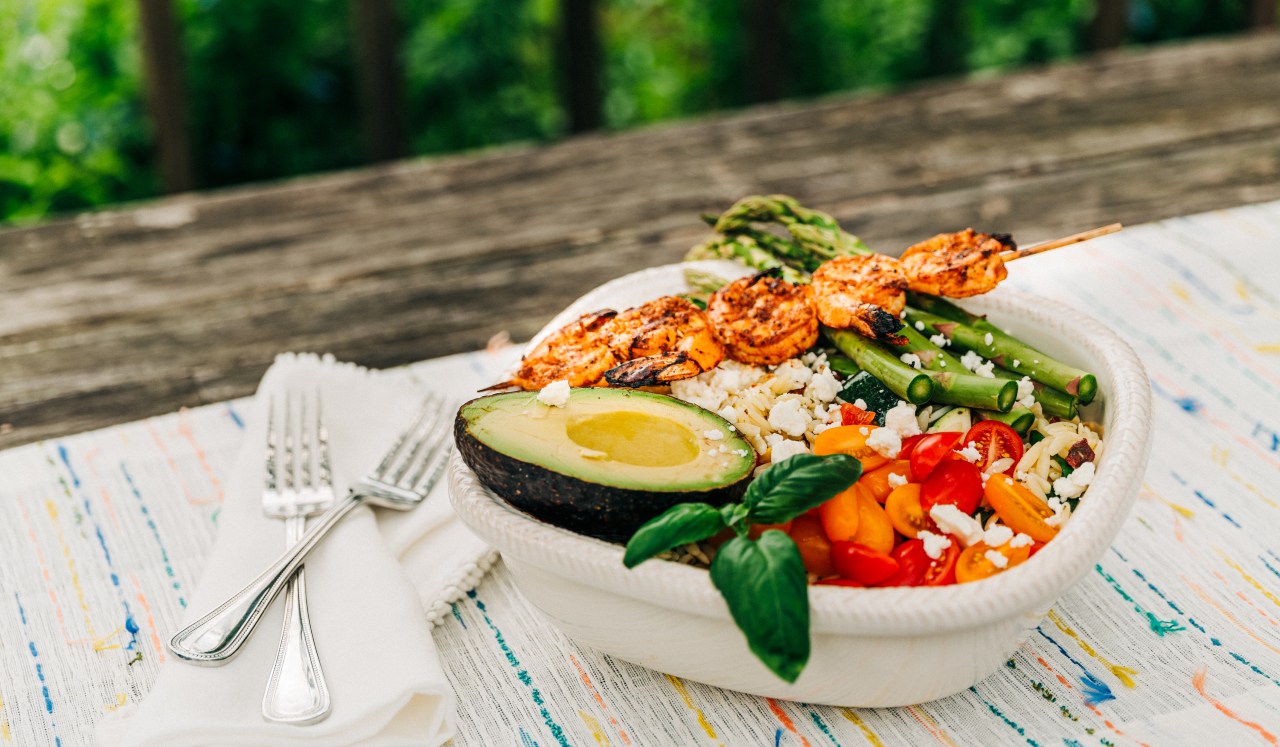Where did those chips or cookies go?
If you’re left holding a bag whose contents quickly disappeared while eating—or inhaling—then it’s time to address HOW you eat, which can be as vital as WHAT you eat.
Moving from mindless to mindful eating alone may make a difference in whether you lose weight, says Laura Salazar-Hopps, MDiv., BCC, Supportive Medicine Chaplain at Memorial Hermann Memorial City Medical Center.
“When we’re running and distracted, we eat quickly,” she says. “That doesn’t allow our body time to recognize we’re full, or we may ignore those warnings.”
Almost as bad, she notes, is missing the joys of aromas, textures and tastes. “Part of healthy eating is paying attention to the experience,” she says.
The first antidote to mindless eating is addressing how and why you’ve shed the delights of dining:
- You’re habituated to a world where you’re constantly surrounded by sound, visuals and sensations outside your body. You turn on the TV, recline on the sofa, stand in the kitchen or jump in the car, often abandoning your dining room or breakfast nook as if your meals alone aren’t entertaining enough.
- You shovel in food because you’re multitasking, by juggling emails, phone calls, texts and your children’s needs. Are you so busy, you barely taste, experience—or even look at—what you’re eating? “That only adds to your stress and the likelihood you’ll overeat,” she says.
- Your head is in the future, not the present, as you ponder errands, obligations and demands. So you grab insta-foods, not nutritious ones.
- You’re sad, stressed, anxious, bored or otherwise experiencing heightened emotions and therefore ‘eat’ your feelings with comfort foods.
- You grew up rewarding yourself with food, like “treats” defined as sweets. You may be passing on that heritage, giving your kids cookies or candy if they don’t melt down in the supermarket.
So how can we break the cycle?
- Stop. Sit, not on the sofa, but at a table and in silence, stripped of your accessories to food crimes: the remote, phone, laptop or car keys.
- Focus on the food or cup of java in front of you. “Give yourself permission to take a break and make this your time and space,” Salazar-Hopps says. “We appreciate food so much more when we eat slowly and savor each bite, and are in touch with the sensations of our body and the experience.” Becoming mindful may take practice. If you find focusing challenging, set a timer for the first five minutes of a meal and eat in silence, putting your fork down between bites.
- Welcome family, friends and colleagues into your fresh approach of truly observing, smelling and tasting your food. After five wordless minutes, you can dish about the encounter of being fully present, not distracted, and how it enhances your sense of wellbeing. “If your children are very young, you may need to make it two to three minutes,” Salazar-Hopps says.
- Experiment. At the grocery store, buy fruits, vegetables or other suggested items on your weekly Resolution shopping list that you’ve never tried before. Highlight flavors with herbs and spices, but don’t hide them in sauces. “Experience food with an open curiosity, as if it’s the first time you’ve eaten it,” she says.
- Recognize that emotional eating loses its pleasure after a few bites, and often you spiral into shame and self-criticism after—or even during—a binge.
- Note when stress rather than hunger motivates you to eat. Also, become more aware of feedback: the sensations and impact of your choices. The benefits of instant gratification often are short-lived. “A cupcake might bring you three seconds or minutes of pleasure and an energy rush. But two hours later a sugar crash follows, along with a side of regret,” Salazar-Hopps says.
“Kindness to yourself includes not only forgiveness, but also wisdom to recognize that momentary pleasure can make you feel worse overall,” she says.
Notice how a walk relieves stress more effectively. And, if you’re hungry, snack instead on an apple, savoring its sweetness, crispness and juiciness.
“You may feel proud of yourself and also grateful for the tree and sun that produced it,” she says. “Hours later, you still feel good. Mindfulness nurtures your body, mind and spirit. Those benefits can last forever.”


